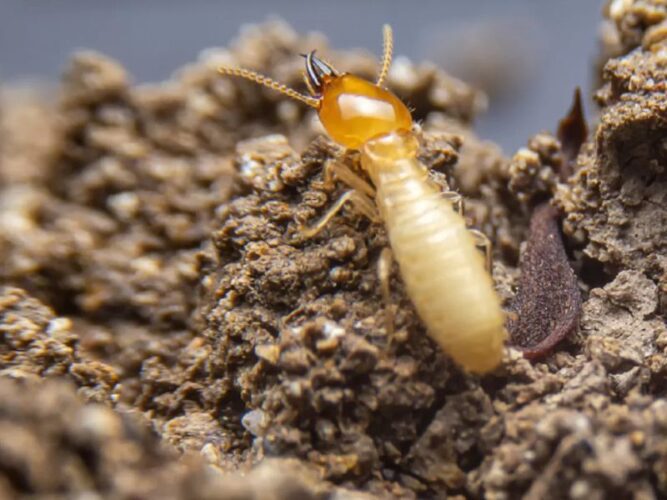Many people seek out efficient termite treatment solutions because of the extensive damage that termite infestations can do to houses and buildings. While protecting your home against termites is a top priority, it’s important to be aware of the hazards involved with treatment.
In this post, we’ll take a look at the potential health issues that might occur during termite treatment and discuss some strategies for dealing with them.
Termite Treatment
Termite treatment is the practice of using numerous methods to get rid of or manage termite populations in a structure, whether it be a home or a business.
The goal of these procedures is to stop additional termite damage to the building and preserve its structural soundness. There are, however, potential dangers and risks associated with these treatments that patients should be aware of.
Common Termite Treatment Methods
Before delving into the health risks, let’s briefly discuss some common termite treatment methods employed by pest control professionals:
Chemical treatments
Chemical treatments involve the use of pesticides to eliminate termites. These pesticides may be applied directly to infested areas, injected into the soil around the property, or used as barriers to prevent termite entry. Chemical treatments are typically effective but require caution due to the potential risks associated with pesticide exposure.
Baiting systems
Baiting systems are an alternative approach to termite treatment. They involve placing bait stations around the property, which contain materials that attract termites. Once termites feed on the bait, they carry the poison back to their colony, effectively eliminating the entire termite population. Baiting systems are generally considered safer than chemical treatments.
Barrier treatments
Barrier treatments create a protective barrier around the property using liquid chemicals or physical barriers. These barriers deter termites from entering the structure, effectively preventing infestations. Barrier treatments can be a proactive and long-term solution, but the chemicals used may pose some health risks.
Health Risks of Termite Treatment
When undergoing termite treatment, it’s crucial to be aware of potential health risks that may arise:
Exposure to chemicals
Chemical treatments involve the use of pesticides, which may contain harmful substances. Prolonged or direct exposure to these chemicals can be detrimental to human health. Individuals with respiratory conditions, allergies, or compromised immune systems may be particularly susceptible to the adverse effects.
Respiratory issues
Inhalation of airborne chemicals or dust particles during termite treatment can lead to respiratory problems. Symptoms may include coughing, wheezing, shortness of breath, or even asthma attacks. Proper ventilation and following safety guidelines can help minimize these risks.
Skin irritations
Contact with pesticides or other treatment chemicals may cause skin irritations or allergic reactions. Skin redness, itching, rashes, or blisters can occur upon direct contact. Wearing appropriate protective clothing and thoroughly washing any exposed areas can help prevent skin-related issues.
Allergic reactions
Some individuals may be hypersensitive or allergic to certain chemicals used in termite treatments. These allergic reactions can range from mild symptoms like nasal congestion and skin rashes to severe manifestations such as anaphylaxis. Immediate medical attention is necessary in case of severe allergic reactions.
Safety Measures During Termite Treatment
To minimize health risks associated with termite treatment, it is advisable to follow these safety measures:
Hiring professional pest control services
Engaging the services of licensed and experienced pest control professionals is crucial. These experts possess the knowledge and skills to apply treatment methods safely, reducing the risks to both human health and the environment.
Following safety guidelines
Always adhere to the safety guidelines provided by pest control professionals. These guidelines may include vacating the premises during treatment, keeping pets away, covering food and utensils, and following re-entry instructions.
Using protective equipment
When directly involved in termite treatment or handling chemicals, wearing appropriate personal protective equipment (PPE) is vital. PPE may include gloves, masks, goggles, and protective clothing. These measures provide an additional layer of defense against potential health hazards.
Environmental Impact of Termite Treatment
Aside from health risks, it’s essential to consider the environmental impact of termite treatment:
Impact on soil and water
The use of certain chemicals in termite treatment can potentially contaminate soil and water sources. These chemicals may infiltrate the ground and affect nearby ecosystems, including plants, animals, and beneficial insects. Opting for eco-friendly treatment alternatives can help mitigate these environmental concerns.
Potential harm to beneficial organisms
Pesticides and other treatment methods can inadvertently harm beneficial organisms that contribute to ecological balance. For instance, certain chemicals may adversely affect pollinators or natural predators of pests. Striking a balance between termite control and preserving biodiversity is crucial.
Eco-friendly alternatives
In recent years, eco-friendly termite treatment alternatives have gained popularity. These methods utilize natural or less harmful substances, reducing the impact on the environment and minimizing health risks. Examples include biological controls, physical barriers, and the use of organic compounds.
Conclusion
While termite treatment is necessary to protect your property from termite damage, it’s important to be aware of the potential health risks associated with these procedures. Understanding the various risks, following safety measures, and considering eco-friendly alternatives can help ensure a safer and more environmentally responsible approach to termite control.

